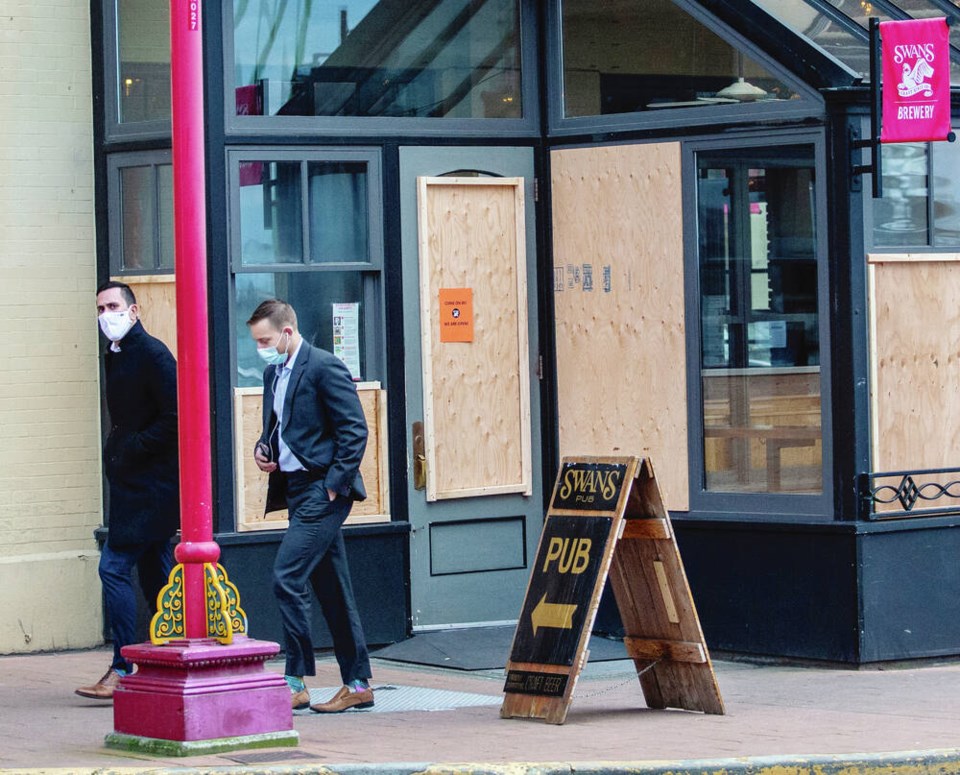There is much to welcome in the sa国际传媒 government’s announcement that the province will create dedicated response teams to fight violent crime.
Solicitor General Mike Farnworth has committed $25 million over three years to hire 21 additional Crown prosecutors, along with more prison guards and probation officers. They have been tasked with focusing on high-risk, repeat offenders.
The province is also counting on Ottawa to amend the Criminal Code, making it less likely that violent offenders will be released on bail.
Farnworth is entitled to expect this change. In January all 10 provincial premiers along with the three territorial premiers wrote to Prime Minister Justin Trudeau asking for bail reform.
In response, federal Justice Minister David Lametti promised targeted amendments aimed at repeat violent offenders along with individuals facing firearms charges.
All of this is good news then. But is it sufficient?
As store owners in Victoria and other city centres across the province can testify, their businesses are being put at risk by petty vandals who repeatedly smash shop windows, spray paint around doorways and harass shoppers.
Several owners are actively considering leaving the downtown area as the vandalism escalates.
It’s not only businesses that are being attacked. Last month windows at the Greater Victoria Public Library were smashed six times in two weeks.
And Cedar Hill Middle School was closed for a day after someone broke into the building and discharged fire extinguishers.
Last year the sa国际传媒 Urban Mayors Caucus, co-chaired by Victoria’s outgoing mayor Lisa Helps, wrote to then-attorney general David Eby calling for more effort to tackle property crime.
The caucus noted that over the preceding four years, there had been a 75 per cent increase in the number of prolific offenders caught by police but not charged.
In Victoria, one offender had generated 248 offences.
An offender in Prince George generated a staggering 916 police files, yet none resulted in charges. And a man in Kelowna with several hundred RCMP files “is routinely released with conditions, and subsequently reoffends.”
In the face of such inaction by courts and prosecutors, the caucus warned that frontline law enforcement officers were frustrated and need more backing.
In this respect, the decision by Victoria council to cut its police department’s proposed budget by $1.7 million makes strange reading.
The concern is that a justice system newly refocused on dangerous offenders may continue to give vandalism and property crime a pass.
For most of the offences reported by the mayors were of the non-violent sort, such as theft, mischief, possession of stolen goods and so on. While many were likely the work of repeat offenders, they don’t rise to the level of what would be considered violent crime.
Yet collectively, the damage posed by these disruptive acts can be just as real as that associated with more violent behaviour. Petty crime undermines the quality of life in urban centres, destroying their charm and liveability if it goes unchecked.
And cities like Victoria, dependent economically on the tourist trade, are most at risk.
It’s worth noting that rarely if ever do all 13 of the country’s premiers and Ottawa agree on anything. That a consensus has emerged shows how urgent the need to deal with repeat, unchecked offenders has become.
But if the response is to be effective, it must be comprehensive. For violent crime is only the tip of a larger iceberg.
Getting tough on dangerous offenders is an important step forward. But it will not suffice unless attention is also directed at less severe, but chronically disruptive vandalism.
This is not an either-or proposition. We can deal with both.
>>> To comment on this article, write a letter to the editor: [email protected]



